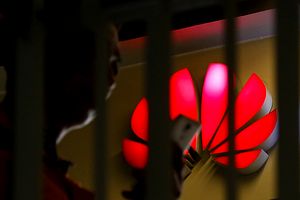Huawei has offered the Indian government a “no-backdoor” agreement in light of the accusations of spying levied against the company by the U.S government. Huawei’s India head has also urged other original equipment manufacturers like Ericsson and Nokia to take the same route. Huawei’s overtures coincide with two significant events. First is the arrival of U.S Secretary of State Mike Pompeo in India; Pompeo has criticized Huawei and, by extension, Chinese investments. The other important event was Huawei’s founder and chairman Ren Zhengfei saying that the company is willing to sign “no-backdoor” agreements with a host of countries looking to rolling out Huawe’s 5G.
Huawei’s position aims to put to rest suspicions raised by the U.S. government over the last decade, which have intensified under the Trump administration. Before offering the agreement mentioned above to India, Huawei has provided various arrangements to other governments. For example, the U.K. has established some oversight mechanisms and the Germany government is planning the same. But a similar offer was turned down by Australia, which decided to not include Huawei in their 5G plans.
Huawei certainly anticipates a positive response from the Indian government. A signed “no-backdoor” agreement may tamp down arguments against the inclusion of Huawei in India’s 5G plans.
The “no-backdoor” agreement on paper seems like a lucrative option and an attempt to convince the government of one of the biggest markets in the world to allow Huawei in. Of course, no government should take such “no-backdoor” agreements at face value. Such agreements won’t necessarily change the allegations leveled against Huawei, which are rooted in China’s 2018 amended National Intelligence Law. That law compels organizations to cooperate with the Chinese state, particularly intelligence agencies.
Related to the issue of intelligence is the growing grip of the Chinese Communist Party on businesses as it pushes to set up Party cells in privately owned enterprises, foreign firms, and even joint ventures. Such CCP cells serve to co-opt so-called private enterprises in China, blurring the line between private business and the Party. Under such conditions, can a “no-backdoor” agreement hold much weight?
Huawei could push for an oversight body, in lieu of the “no-backdoor” agreement, an arrangement which it has already with the British government. Since 2014 the Huawei Cyber Security Evaluation Center (HCSEC) Oversight Board has come out with reports indicating various issues with Huawei U.K. and its parent company. Some experts have recommended that in India’s case, the National Critical Information Infrastructure Protection Center take up a similar role. However, an oversight body just gives recommendations and would involve a senior executive from Huawei, as is the case with HCSEC. Both options for India are available, but the problems remain the same.
While the “no-backdoor” agreement would give some assurances on paper, the new intelligence law in China, along with the tightening grip on private enterprises, makes the proposition of the agreement difficult to believe. On the other hand, an oversight body might take time to set up, which in a way would mean delaying the rollout of 5G services. But with the plans for auctions and trials already in place, it seems improbable to delay the the launch of 5G in India.
It is still unclear whether India will accept Huawei as one of the vendors for 5G. The answer may also depend on the outcome of the bilateral meeting between U.S. President Donald Trump and Indian Prime Minister Narendra Modi on the sidelines of the G-20 Summit in Osaka, Japan. There are myriad other bilateral issues, which Pompeo will tackle with his Indian counterparts, like trade and the S-400 matter in addition to telecommunications. The decision to take on Huawei as a vendor or not has to be unilateral, as India’s nonalignment policy mandates that it not just bow down to U.S requests. At the same time, accepting the Chinese tech giant comes with huge security risks, which India has to assess carefully.
Aayush Mohanty is a Research Associate at the Vivekananda International Foundation, a think tank based out of New Delhi. The views of the author do not necessarily reflect with the views of the VIF.

































